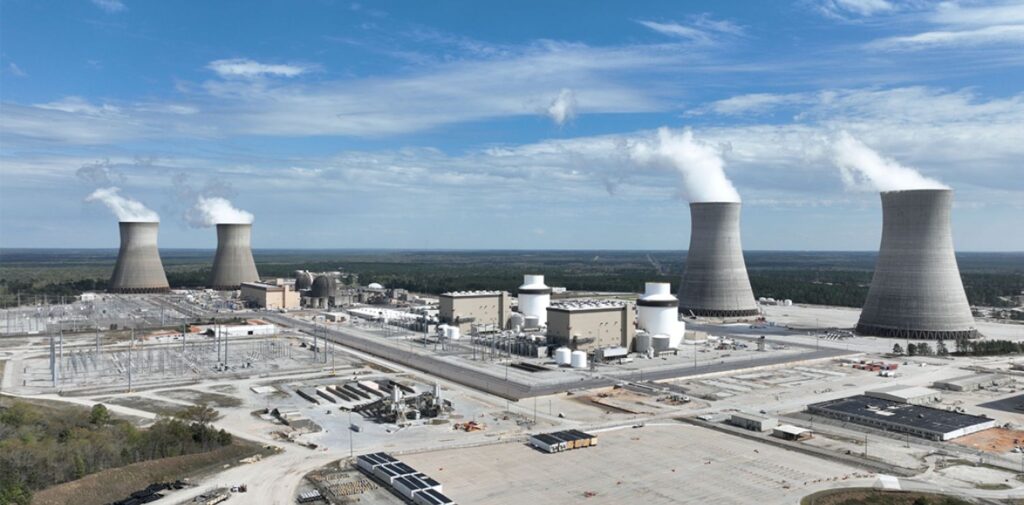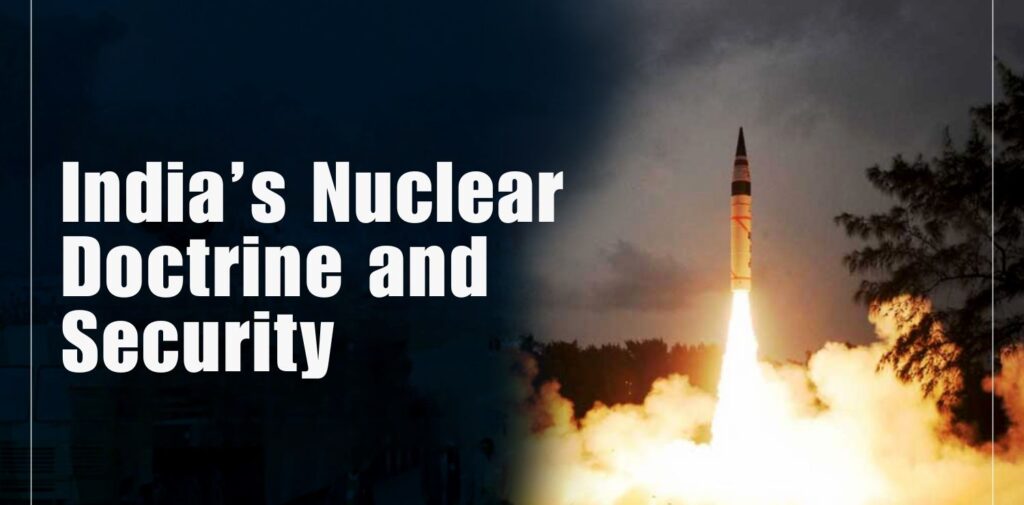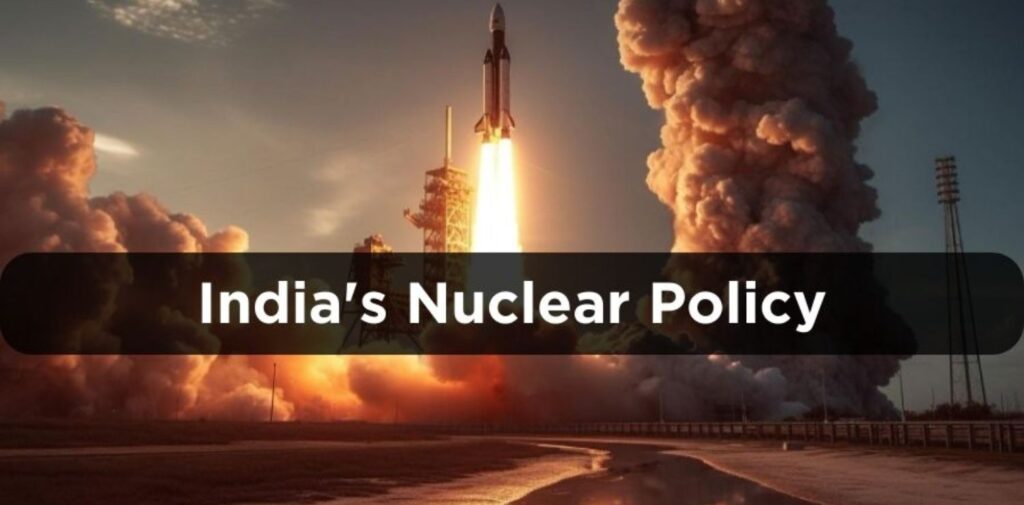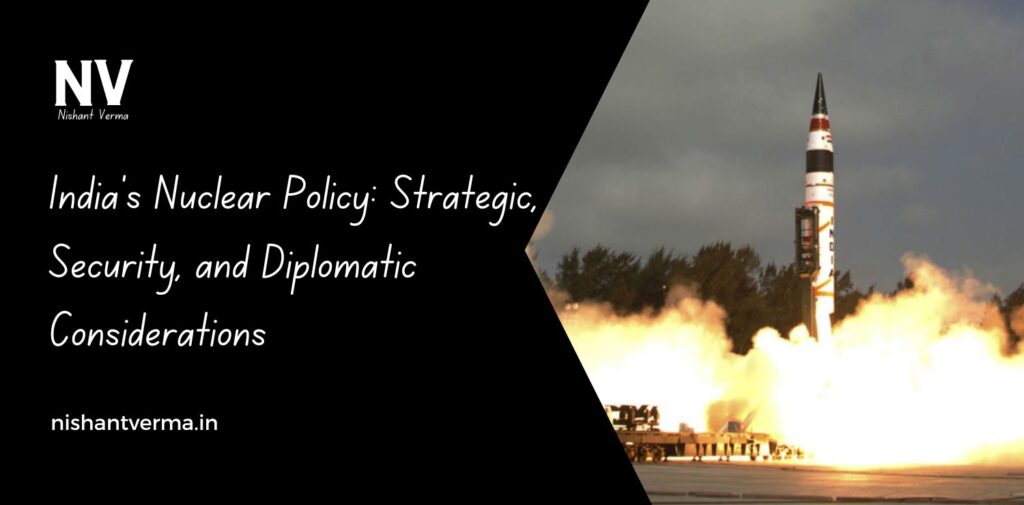India is a country known for its rich history, diverse culture, and large population. But one of the most important aspects of India’s modern politics and security is its nuclear policy. Nuclear power is a big deal for any country because it involves the ability to use nuclear energy for peaceful purposes and, in extreme cases, for defense. So, what exactly is India Nuclear Policy, and how does it impact the country’s security and diplomacy? Let’s explore it in simple terms.
What is Nuclear Power?
Before we dive into India Nuclear Policy, it’s important to understand what nuclear power is. At its core, nuclear power is energy that comes from the nucleus (center) of an atom. This power can be used for peaceful purposes, like generating electricity, or for creating weapons, like nuclear bombs.
Many countries, including India, have developed nuclear technology for both peaceful uses, such as energy production, and for defense. India Nuclear Policy has evolved over the years, shaped by its national security needs, diplomatic relations, and the global political environment.

India’s Nuclear Journey: From the Beginning
India’s journey with nuclear technology started soon after it gained independence in 1947. The country faced many challenges, and one of the most pressing concerns was national security. India’s leaders realized that having the ability to use nuclear technology could strengthen the country’s defense and help it maintain a strong position in the world.
India started its nuclear program with a focus on peaceful uses, like generating electricity. The country established its first nuclear reactor in 1956 under the leadership of Jawaharlal Nehru, India’s first Prime Minister. However, the world was going through the Cold War, and the nuclear arms race between countries like the United States and the Soviet Union was growing. This led India to consider the need for nuclear weapons to ensure its security.
India’s Nuclear Tests
In 1974, India conducted its first nuclear test, codenamed Smiling Buddha, in the Thar Desert of Rajasthan. This was India’s way of showing the world that it had nuclear capabilities. While the test was widely seen as a demonstration of power, India’s leadership at the time emphasized that it would only use nuclear weapons in extreme situations, such as self-defense.
In 1998, India conducted a series of nuclear tests called Operation Shakti. These tests confirmed that India had become a nuclear power with the ability to make nuclear weapons. The tests led to a global debate on nuclear proliferation, but India made it clear that its nuclear weapons were not meant to start wars, but rather to protect the country’s sovereignty.
India Nuclear Policy: The Key Principles
India Nuclear Policy is based on a few key principles that guide the country’s approach to nuclear weapons and nuclear energy. These principles are important for understanding India’s stance on nuclear weapons and how it uses them in terms of security and diplomacy.
No First Use (NFU) Policy
One of the most important features of India Nuclear Policy is the No First Use (NFU) policy. This means that India has pledged not to use nuclear weapons unless it is first attacked by an enemy using nuclear weapons. In other words, India will only use its nuclear weapons in retaliation if it is attacked with nuclear weapons. This policy shows that India believes in using nuclear power as a defense, not for offensive purposes.
The NFU policy also reflects India’s belief in peace and stability. It shows that India does not want to start a nuclear war but only to protect itself from any nuclear threats. This policy is meant to reassure neighboring countries that India will not use nuclear weapons without provocation.
Minimum Deterrence
India Nuclear Policy is also based on the principle of minimum deterrence. This means that India does not seek to have the largest or most powerful nuclear arsenal. Instead, India focuses on maintaining a small but effective nuclear force that can act as a deterrent. The idea is that if potential enemies know that India has the ability to retaliate with nuclear weapons, they will be less likely to attack.
India does not aim to compete with other countries in building the largest number of nuclear weapons. Instead, it aims to ensure that its nuclear arsenal is enough to protect its sovereignty and national interests.
No Use of Nuclear Weapons for Aggression
India Nuclear Policy clearly states that it will not use nuclear weapons to attack other countries. This means that India will never use nuclear weapons for aggressive purposes or to expand its territory. The focus is always on self-defense and ensuring that India’s security is not threatened.
This principle helps India maintain a peaceful image on the global stage. India wants to show the world that it is a responsible nuclear power and that its nuclear weapons are only meant to defend the country.

India Nuclear Doctrine and Security
India’s nuclear doctrine is focused on national security and the defense of its people. The country believes that nuclear weapons act as a shield to protect against external threats, particularly from neighbors with nuclear capabilities.
India has a nuclear triad, which means that it can launch nuclear weapons from three different places: land-based missiles, submarines, and aircraft. This gives India the ability to retaliate in case of a nuclear attack from any direction. The Strategic Forces Command (SFC) is responsible for overseeing India’s nuclear weapons and ensuring they are ready for use in case of an emergency.
The nuclear deterrence provided by India’s weapons helps maintain peace in the region. It sends a strong message to potential adversaries that any nuclear aggression against India will result in severe retaliation, making any such attack highly costly.
Diplomatic Considerations: India’s Nuclear Relations with the World
India Nuclear Policy is not just about defense; it also has a strong diplomatic dimension. India’s nuclear stance affects its relationships with other countries, especially those that are part of international treaties like the Nuclear Non-Proliferation Treaty (NPT).
India is not a signatory to the NPT, which aims to prevent the spread of nuclear weapons. India has argued that the NPT is unfair because it allows some countries to keep nuclear weapons while denying others the right to develop them. Instead, India supports global disarmament and advocates for a world where no country has nuclear weapons.
Despite not signing the NPT, India has been able to build strong nuclear relationships with countries like the United States, Russia, and France. In 2008, India and the United States signed a nuclear deal that allowed India to engage in nuclear trade for peaceful purposes. This deal marked a shift in India’s global nuclear relations, allowing it to access advanced nuclear technology and energy.
India also participates in global efforts to prevent the spread of nuclear weapons. It is a member of the Nuclear Suppliers Group (NSG), a group of countries that controls the export of nuclear materials and technology. While India is not a member of the NPT, it has been working towards being recognized as a responsible nuclear power by the international community.

India Nuclear Policy and Regional Security
India Nuclear Policy is also influenced by the security situation in its region. India shares borders with countries like China and Pakistan, both of which have nuclear weapons. The nuclear capabilities of these neighboring countries are a key factor in shaping India’s own nuclear strategy.
India and Pakistan have fought wars in the past, and both countries have developed nuclear weapons. The presence of nuclear weapons in the region makes it even more important for both countries to avoid direct conflict, as the consequences of a nuclear war would be disastrous. India’s nuclear weapons act as a deterrent against any aggression from Pakistan.
On the other hand, India’s relationship with China has also been influenced by the presence of nuclear weapons. China has a large and advanced nuclear arsenal, and India’s nuclear capabilities are seen as a way to maintain balance in the region. India Nuclear Policy focuses on ensuring that it has enough power to defend itself from any potential threats from its neighbors.
Conclusion: A Responsible Nuclear Power
India Nuclear Policy is based on the principles of defense, deterrence, and diplomacy. It focuses on using nuclear power to protect the country while maintaining peace and stability in the region. India’s No First Use policy, along with its commitment to minimum deterrence, reflects its responsible approach to nuclear weapons. While India is not a signatory to the NPT, it works with other countries to promote global nuclear security and disarmament.
As a nuclear power, India plays an important role in shaping global discussions on nuclear weapons and security. Its nuclear policy is carefully designed to ensure national security, support global peace, and maintain good diplomatic relations with other countries. In a world where nuclear weapons are still a reality, India’s approach to nuclear policy sets an example of responsibility and caution.




